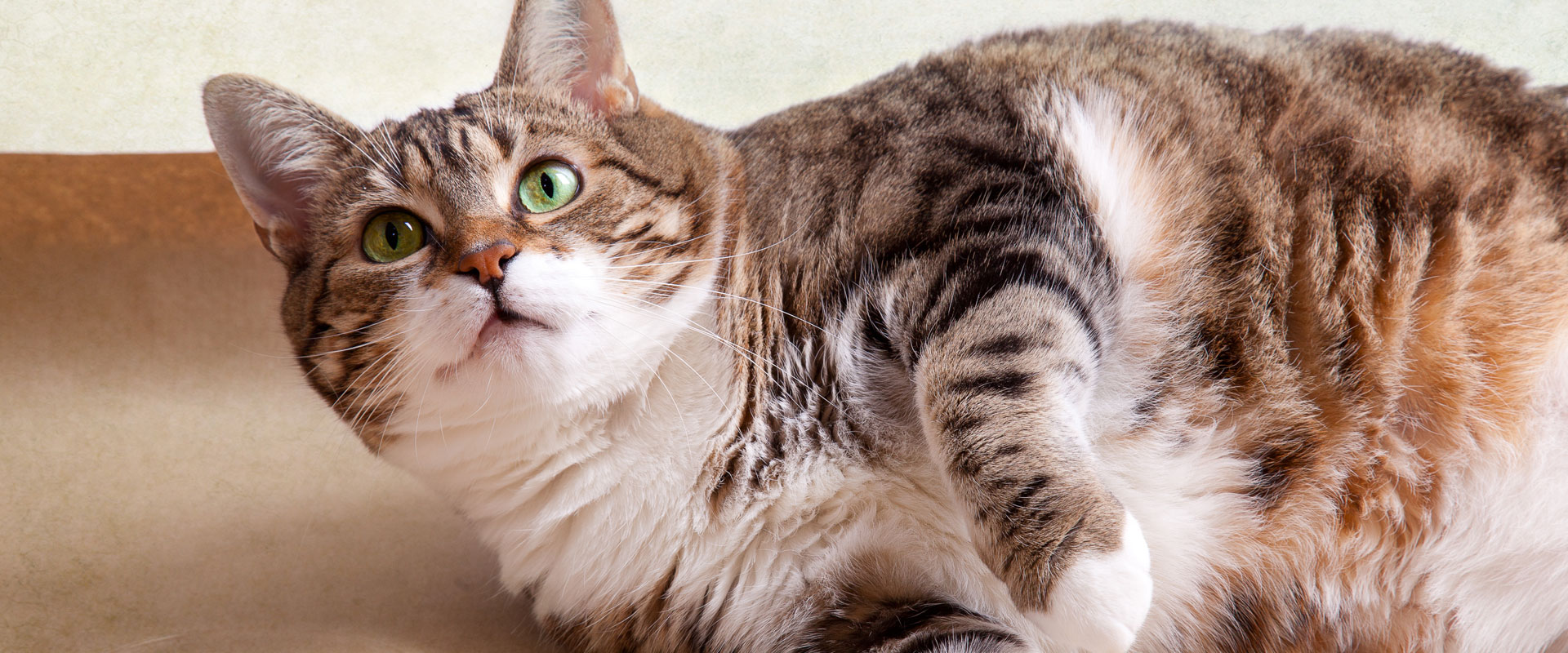What to Do About Your Overweight Indoor Cat
Social media feeds might be full of pictures and videos of “chonky” cats, but unfortunately, the health risks that these overweight and obese animals are facing aren’t so cute. Cats who carry around extra pounds are at risk of diabetes, heart disease, osteoarthritis, liver disease, skin problems, and living a shorter lifespan. On average, healthy cats weigh 8 to 10 pounds, and just two extra pounds can put a cat at risk for health problems. Cats can gain excess weight for many different reasons including their diet, activity level, gender, reproductive status, and age.
To safeguard your pet’s health, it is important to manage weight or to take steps that will help your overweight indoor cat shed pounds.
How to Help an Overweight Cat Lose Excess Weight
1. Schedule a Veterinary Appointment
The first step in a cat’s weight loss journey should be a veterinary assessment. During a weight management checkup, we’ll screen your pet for weight-related health concerns and also assess your pet to help you establish a reasonable, healthy goal weight.
2. Consider Dietary Choices
Our veterinarian will also provide you with professional advice regarding your pet’s nutrition and dietary habits. We will recommend a healthy, low-calorie, high-nutrient food, and instruct you on how to transition your cat to a new diet. We will provide you with guidelines regarding portion sizes, cat treats, and discuss your pet’s feeding schedule.
3. Increase Exercise
Sedentary cats gain weight easily because they aren’t burning enough calories. Increase playtime to get them up and moving. Invest in new cat toys like teasers, rolling bells, and catnip balls. You can also try leash training your cat with a harness to go out for daily walks. Although this seems unusual, you might find that your cat enjoys going safely outside to see the birds and trees.
4. Lose Gradually
Crash diets and fast weight loss are unsafe. We’ll help you establish a weight loss plan that allows your pet to lose weight gradually.
5. Stay Committed
Getting your cat to a healthy weight is a slow process that’s often met with protests from cats that are used to different nutritional habits. Be patient and stay committed to preserving your cat’s health.
Schedule a Feline Weight Assessment and Nutritional Counseling Appointment
While nutritional counseling and weight management are parts of general wellness appointments, overweight and obese pets require special attention. If you’re concerned about your cat’s weight, schedule a weight management appointment with Capital Home Veterinary Care. Our mobile veterinary clinic can help your cat achieve and maintain a healthy weight.

